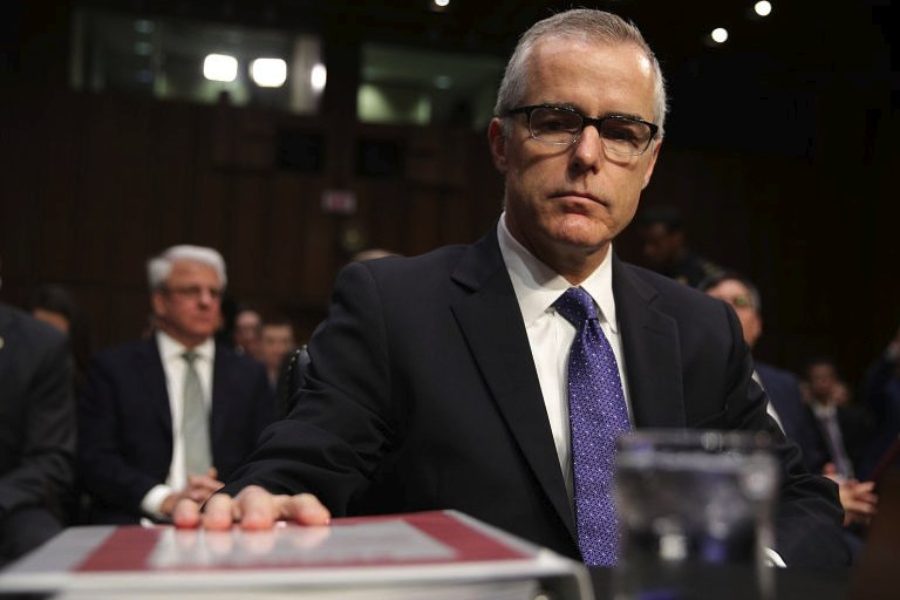In April 2015, National Public Radio reported on the case of former FBI Special Agent Robyn Gritz who had been forced out of the bureau after she “got crosswise with her supervisors.”
“When you’re fighting terror and you’re seeing buildings come down before you, you’re passionate and you’re emotional, and I think the American people want you to be that way when you’re fighting terror and keeping them safe,” she said.
For fifteen years, she worked non-stop investigating the plane that crashed into the Pentagon on September 11, 2001, helping to rescue Western hostages and tracking down global terrorists. She was detailed to the CIA and worked closely with the Defense Intelligence Agency which was led by General Michael Flynn.
She even briefed former FBI Director Robert Mueller about sensitive cases such as the disappearance of a retired FBI agent inside Iran. Throughout this time, her FBI bosses gave her excellent or outstanding performance reviews.
But then her career took a turn for the worse when she began working for then rising star Special Agent Andrew McCabe and his leadership team. In 2012, she received her first negative performance rating and was subsequently driven out of the bureau. In response, she filed an EEOC complaint against a small group of FBI executives. And in 2014, she added McCabe to the complaint averring that she suffered “a hostile [work] environment, defamation of character through continued targeting by Andrew McCabe.”
The FBI claimed that she had become “underperforming, tardy to work, insubordinate, possibly mentally ill…” So how was Gritz going to survive that kind of attack by the world’s greatest investigative agency? Enter General Flynn.
In May 2014, Flynn provided a letter on Pentagon stationery which stated that Gritz “was well-known, liked and respected in the military counter-terrorism community for her energy, commitment and professional capacity, and over the years worked in several interagency groups on counter-terrorism targeting initiatives.” He added, “Her work consistently produced outstanding results in the most challenging environments.”
In 2015, Flynn publicly supported Gritz in an interview broadcast on NPR in which he said that it was a shame that the FBI rid itself of Gritz who had years of top national security experience. He lauded her as one of the “bright lights and shining stars” in the intelligence community. He added that she “just kinda got it when it came to the kind of enemy that we are facing and the relationship that was necessary between law enforcement and the military…and I just thought she was really a real pro.”
Subsequently, Gritz’s lawyer notified the court that Flynn and other top officials would be witnesses on her behalf. The FBI’s effort to preclude such testimony was unsuccessful, and McCabe was required to submit an opposing sworn statement to EEOC investigators.
In doing so, McCabe got his spurs tangled. He admitted under oath that the FBI had started an internal investigation into Gritz’s personal conduct after learning that she “had filed or intended to file” a sex discrimination complaint against her supervisors. This bone-headed statement constituted an unequivocal and legally fatal admission that the FBI had illegally retaliated against Gritz for exercising her protected right to file such a complaint. As someone with a law degree, McCabe had made a complete fool of himself.
As these events unfolded, McCabe became Deputy Director of the FBI. In that capacity, he was at the center of the Russia election tampering investigation, and it was then, according to reports, that he saw his chance to get back at Flynn. Citing three anonymous FBI employees (who themselves fear retaliation), Circa.com reports that McCabe expressed intense dislike for Flynn that made these employees “uncomfortable as the Russia probe began to unfold and pressure built to investigate Flynn.”
As that investigation went forward, Flynn became President Trump’s National Security Adviser. Two FBI agents were dispatched to question him concerning his contacts with Russians during the Trump administration’s transition to the White House. Such contacts would, of course, have been entirely appropriate under the circumstances. Presumably the interview questions were based on information derived from FBI electronic surveillance of American citizen Carter Page pursuant to a FISA warrant.
We now know that in March 2017 former FBI Director James Comey advised members of Congress that the agents who interviewed Flynn didn’t believe that he had intentionally lied and that any inaccuracies in his answers were entirely inadvertent
Nevertheless, for reasons that remain a mystery, Special Counsel Robert Mueller saw fit to charge Flynn with one count of lying to the FBI. And, for reasons unknown, Flynn pled guilty. He entered this plea before the judge who had signed the FISA warrant authorizing the FBI to spy on Carter Page.
Since then the Government’s case against Flynn has hit a rough patch.
McCabe has been forced to take “terminal leave” preparatory to retiring from the FBI in March. Why did this happen? The DOJ Inspector General is poised to release a report concerning the fake Clinton email investigation (which McCabe supervised) and related matters. Moreover, in a recent television appearance, former U.S. Attorney for the District of Columbia Joseph DiGenova dropped hints that McCabe wrongfully and illegally ordered agents to materially change their FBI 302 interview reports. Was this done in connection with the Flynn case?
The Flynn case has now been assigned to Judge Emmett Sullivan. This is a disaster for the prosecution. Judge Sullivan has had previous experience dealing with dishonest and unethical DOJ lawyers hiding exculpatory evidence from the defense. Sullivan presided over the trial of Alaska Senator Ted Stevens who was convicted of corruption charges and then exonerated after DOJ prosecutors were caught hiding exculpatory evidence which supported Stevens’ defense. As a result, Sullivan has issued and strictly enforces a standing order requiring the prosecution to turn over all exculpatory evidence to the defense.
Since the case wound up before Sullivan several things have happened. First, the parties have agreed to delay Flynn’s sentencing. This could be because Flynn has become a cooperating witness and Mueller wants to delay sentencing until Flynn testifies in open court for the prosecution.
The more likely reason, however, may be the disintegrating probable cause for the FISA warrant, i.e., the laughably fictitious Steele dossier. Presumably without the electronic intercepts pursuant to that warrant, there would be no basis for prosecuting Flynn. As the facts emerge, the suppression of such evidence appears to be likely.
And today Team Mueller and Flynn’s lawyers entered into a confidentiality agreement under which the evidence to be produced by the government will be kept under seal save for its use in court. This means that Flynn’s lawyers are seeking further discovery. This could be for purposes of preparing for sentencing, but again that seems unlikely. The more likely reason would be that Flynn may be considering withdrawing his guilty plea and preparing for trial.
McCabe is out, the FISA warrant is disintegrating, and the DOJ Inspector General is about to carpet bomb the FBI and DOJ.
The twists and turns of the Flynn case continue. But it would be sweet if the sexual harassment complaint by poor Robyn Gritz launched Andrew McCabe on the course of self-destruction.
Sweet indeed.




Leave a Reply
Leave a reply.